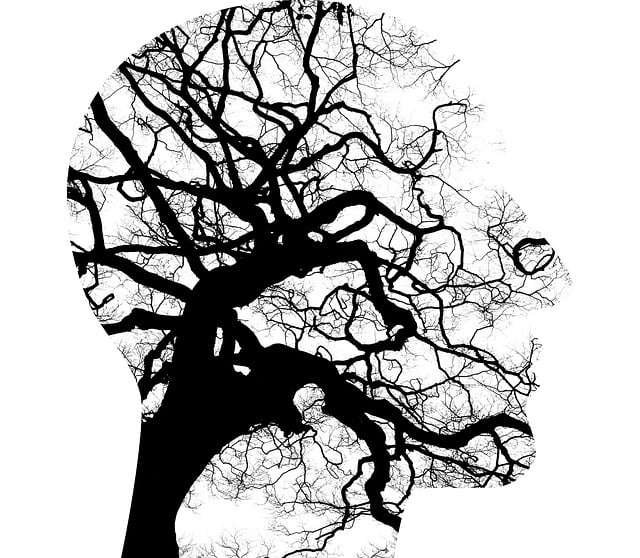Denver Blended Families Therapy emphasizes cultural sensitivity as a cornerstone of effective mental healthcare for diverse communities. By recognizing and respecting unique cultural beliefs, therapists create safe spaces that foster open communication, trust, and improved treatment outcomes. This approach builds resilience among clients from various backgrounds and enables comprehensive risk assessments considering cultural factors. Through tailored therapy and educational resources like podcasts, Denver Blended Families Therapy enhances emotional well-being for all family members. The holistic approach incorporates self-care practices, exercises fostering cultural understanding, and continuous learning to address barriers, improve client outcomes, and strengthen community resilience.
In today’s diverse society, cultural sensitivity in mental healthcare is paramount. Effective therapy requires understanding and navigating unique family dynamics, such as those experienced by Denver blended families. This article explores key aspects of culturally competent practice, including recognizing barriers, implementing strategies, and the profound impact a sensitive approach has on client outcomes and community engagement. By delving into these areas, we aim to enhance mental healthcare accessibility and quality for all.
- Understanding Cultural Sensitivity: A Cornerstone of Effective Therapy
- Denver Blended Families: Navigating Unique Family Dynamics
- Recognizing Cultural Barriers in Mental Healthcare
- Strategies for Culturally Competent Practice
- The Impact of Sensitive Approach on Client Outcomes and Community Engagement
Understanding Cultural Sensitivity: A Cornerstone of Effective Therapy

Understanding Cultural Sensitivity is paramount in mental healthcare practice, especially when working with diverse communities and Denver blended families therapy settings. It involves recognizing and appreciating the unique cultural beliefs, values, and practices that shape individuals’ lives. Mental health professionals must adapt their approaches to create a safe and supportive environment where clients feel understood and respected. By embracing cultural sensitivity, therapists foster open communication, enhance trust, and improve treatment outcomes.
This concept is crucial for building resilience among clients from various backgrounds. It enables mental healthcare providers to conduct comprehensive risk assessments (for mental health professionals) that consider cultural factors influencing mental health. Such an approach ensures that interventions are not only effective but also culturally appropriate, addressing the specific needs and challenges faced by blended families in Denver and beyond.
Denver Blended Families: Navigating Unique Family Dynamics

In Denver, blended families are becoming increasingly common, presenting unique challenges and dynamics within mental healthcare. These families often include step-parents, half-siblings, and complex relationships that can impact emotional well-being. Therapy for Denver blended families is tailored to navigate these intricacies, fostering understanding and support among all members.
Mental wellness is a critical aspect of overall health, especially within diverse family structures. Mental healthcare professionals in Denver must be adept at conducting thorough risk assessments for blended family situations, addressing potential issues like step-parent anxiety, sibling rivalry, or adjustment difficulties. The mental wellness podcast series production can also play a role in educating and connecting families facing these challenges, providing valuable resources and strategies to enhance communication and strengthen relationships within Denver blended families.
Recognizing Cultural Barriers in Mental Healthcare

In the realm of mental healthcare, recognizing and understanding cultural barriers is a pivotal step towards delivering effective treatment. Many individuals from diverse backgrounds, including Denver blended families, may face unique challenges when seeking therapy. These barriers can manifest as differences in communication styles, values, beliefs, and even language, hindering open dialogue and trust between clients and therapists. For instance, cultural norms around expressing emotions or discussing personal matters might vary significantly, affecting the therapeutic process. Therapists must be adept at navigating these nuances to create a safe and non-judgmental environment for all clients.
By integrating self-care routine development for better mental health and encouraging practices like self-awareness exercises and inner strength development, therapists can help clients bridge cultural gaps. These strategies promote understanding and resilience, enabling individuals to confront their mental health issues while respecting and preserving their cultural identities. At Denver Blended Families Therapy, we prioritize this holistic approach, ensuring that every client receives tailored support that respects their unique background and fosters lasting positive outcomes.
Strategies for Culturally Competent Practice

In the realm of mental healthcare, cultural sensitivity is paramount to creating an environment where diverse individuals feel seen and heard. Denver Blended Families Therapy, for instance, must cater to families with unique backgrounds, values, and communication styles. Therapists who adopt culturally competent practices understand that one-size-fits-all approaches rarely resonate with clients from varied ethnic, racial, religious, or cultural origins. This involves active listening to grasp clients’ perspectives, validating their experiences, and adapting therapeutic techniques to align with their beliefs and traditions.
Risk Management Planning for Mental Health Professionals plays a crucial role here by ensuring therapists are equipped to navigate sensitive topics and deliver Trauma Support Services effectively. Emotional Intelligence, the ability to perceive and manage one’s own emotions and understand the emotions of others, is also vital. Through continuous learning, self-reflection, and collaboration with communities, mental health professionals can foster inclusive spaces that promote healing and growth for all clients, regardless of their cultural backgrounds.
The Impact of Sensitive Approach on Client Outcomes and Community Engagement

A sensitive and culturally aware approach in mental healthcare can significantly enhance client outcomes, especially within diverse communities like Denver Blended Families Therapy serves. By recognizing and respecting individual cultural backgrounds, therapists create a safe and non-judgmental space, fostering open communication and trust. This, in turn, enables clients to explore their mental health issues more freely, leading to accurate diagnoses and effective treatment plans tailored to their unique needs.
Such an approach goes beyond mere therapy; it engages the community by promoting understanding and empathy among mental health professionals. This is crucial as it helps reduce potential barriers to care, encourages early intervention, and improves overall well-being. Through cultural sensitivity training, risk assessment tools like those used in Stress Management, and Empathy Building Strategies, Denver Blended Families Therapy ensures its practices are inclusive and beneficial to all clients, thereby strengthening the community’s resilience and collective mental health.
Cultural sensitivity in mental healthcare is not just a preference, but an absolute necessity. As seen with Denver blended families, navigating diverse cultural backgrounds requires tailored approaches. By recognizing and addressing cultural barriers, therapists can create safe spaces that foster open communication. Implementing culturally competent strategies significantly improves client outcomes and enhances community engagement. This holistic approach ensures that everyone receives the supportive, effective therapy they deserve, regardless of their cultural identity or family dynamics. For Denver blended families seeking therapy, a culturally sensitive practice is essential for healing and growth.










